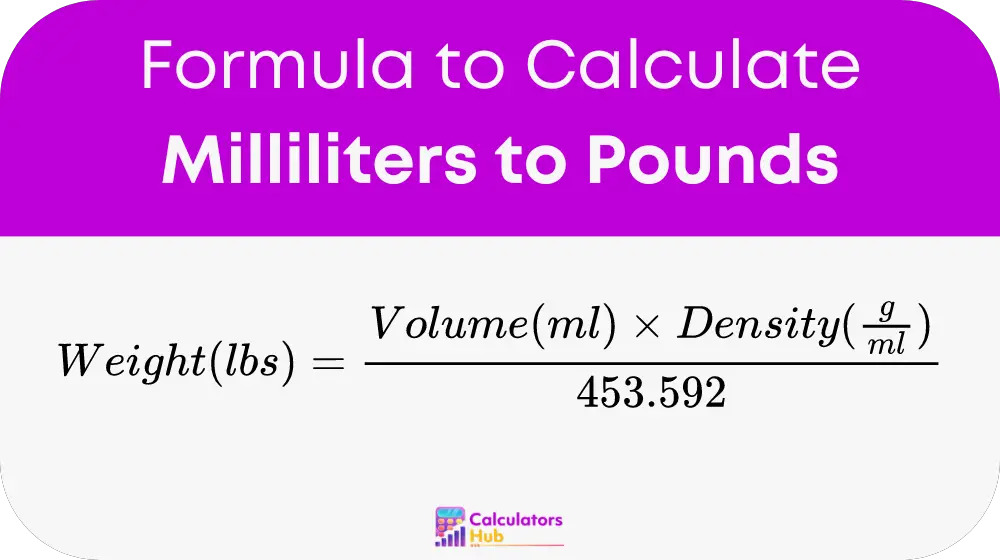The Milliliters to Pounds Calculator is a useful tool for converting the volume of a substance in milliliters to its weight in pounds. This conversion is essential in various fields such as cooking, chemistry, and general science, where understanding the weight of a liquid based on its volume can be critical.
Formula of Milliliters to Pounds Calculator
To convert milliliters to pounds, you need to know the density of the substance. The formula for converting milliliters to pounds is:

Explanation:
- Volume (milliliters): The volume you want to convert to pounds.
- Density (grams per milliliter): The density of the substance.
- 453.592: The number of grams in a pound.
Steps:
- Multiply the volume in milliliters by the density of the substance to get the weight in grams.
- Divide the weight in grams by 453.592 to convert it to pounds.
General Conversion Table
Here is a handy table for some common substances to help you quickly convert milliliters to pounds without needing to calculate each time:
| Substance | Density (g/mL) | Volume (mL) | Weight (lbs) |
|---|---|---|---|
| Water | 1.00 | 1000 | 2.205 |
| Milk | 1.03 | 1000 | 2.271 |
| Olive Oil | 0.92 | 1000 | 2.028 |
| Honey | 1.42 | 1000 | 3.131 |
| Gasoline | 0.74 | 1000 | 1.631 |
| Ethanol | 0.79 | 1000 | 1.742 |
Example of Milliliters to Pounds Calculator
Let's say you want to convert 500 milliliters of water to pounds. Using the formula:
Volume (milliliters) = 500
Density of water = 1.00 g/mL
Weight (grams) = 500 * 1.00 = 500 grams
Weight (pounds) = 500 / 453.592 = 1.102 pounds
So, 500 milliliters of water is approximately 1.102 pounds.
Most Common FAQs
The accuracy of the calculator depends on the accuracy of the density value used. Ensure you use the correct density for the specific substance to get accurate results.
Yes, this calculator can be used for any liquid as long as you know its density. Different liquids have different densities, so the same volume will result in different weights.
Density is crucial because it determines how much a specific volume of the substance weighs. Without the density, you cannot accurately convert volume to weight.